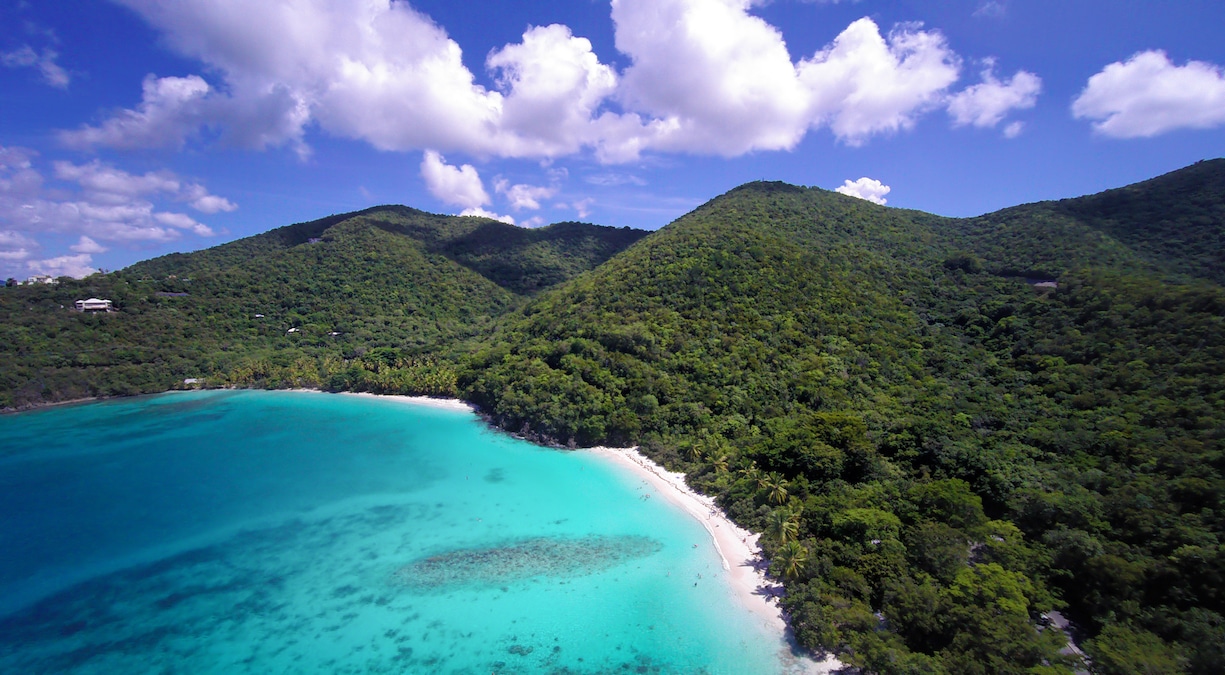U.S. Virgin Islands Protects Land From Development With New Parks System

 Why you can trust us
Why you can trust us
Founded in 2005 as an Ohio-based environmental newspaper, EcoWatch is a digital platform dedicated to publishing quality, science-based content on environmental issues, causes, and solutions.
The U.S. Virgin Islands have created a new system of parks within over 30 areas that will now be protected from commercial development, while being preserved for nature and outdoor recreation.
Hundreds of acres across sites on St. Croix, St. John and St. Thomas are now preserved within the new Territorial Park System, which includes popular areas like Oppenheimer Beach, the Great Salt Pond, Bovoni Cay and Cas Cay, The Associated Press reported. Other areas cited for preservation include Cramer Park, Parcels. No. 5 and 56 Salt River on St. Croix, Steven Cay on St. John, and No. 1 Neltjeberg, a portion of Water Island at Sprat Bay and Nos. 6 and 7 Hassel Island on St. Thomas.
U.S. Virgin Islands Gov. Albert Bryan has also signed a law to revise the trust fund board that will acquire and oversee lands for the parks system, which will operate similarly to the National Park Service.
“Nothing gives me more pleasure than to set up a parks system that will determine a legacy of preservation for all Virgin Islanders to see in perpetuity,” Gov. Bryan said, as reported by Travel Pulse. “There are so many pieces of land in the Virgin Islands, whether St. Thomas, St. John, St. Croix or Water Island, that we want to see preserved in perpetuity. To do that, what we needed to do was create the Territorial Parks System of the Virgin Islands.”
The legislation will also allow the implementation of the Maroon Sanctuary Zone on the West End of St. Croix. Conservationists have long requested such a sanctuary zone in this area as a tribute to honor enslaved peoples who escaped to the Caribbean from West Africa as well as their descendents.
“The people who made ‘Maroon Country’ their sanctuary and stood for freedom and human dignity have names and identities,” wrote Olasee Davis, extension professor/extension specialist in natural resources at the University of the Virgin Islands, for St. Thomas Source in July. “They are part of the ancestral history of St. Croix and are connected to the people alive on St. Croix today. It is for this reason and more that it is imperative that we establish a Territorial Maroon Park in honor of the Maroons of the Virgin Islands.”
The new legislation will preserve more than 30 areas for outdoor recreation, such as hiking and beaching. Nature preserves and parks may also be established within the new Territorial Park System, and the lands will be protected from any commercial development.
“Given growing concerns regarding beach access, environmental degradation and the loss of significant historic and other sensitive sites, all those involved in advancing this measure should be proud,” said U.S. Virgin Islands Sen. Samuel Carrion.
Subscribe to get exclusive updates in our daily newsletter!
By signing up, you agree to the Terms of Use and Privacy Policy & to receive electronic communications from EcoWatch Media Group, which may include marketing promotions, advertisements and sponsored content.

 233k
233k  41k
41k  Subscribe
Subscribe 




